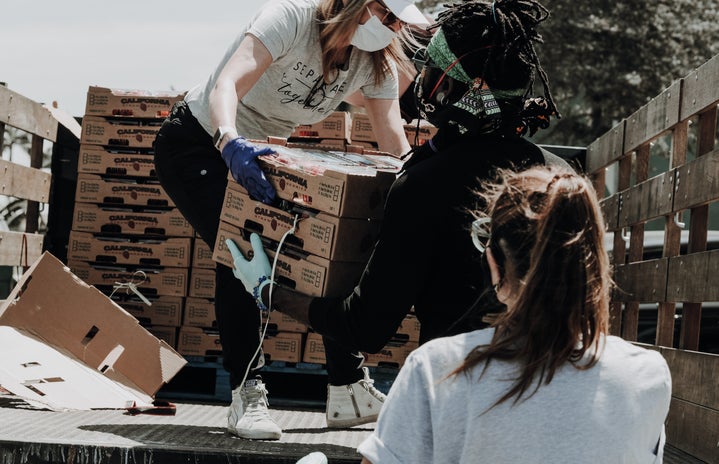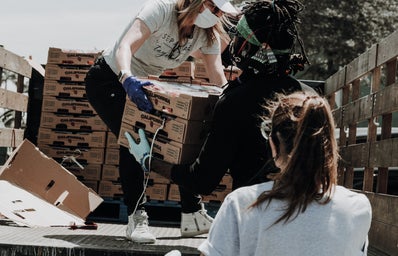In the field of social psychology, reciprocity is usually defined as responding to a positive action with another positive action. It was only until I learned about how strong its effect can be on society that I realized how quickly we forget the simple importance of being kind and giving back to others. Random acts of kindness take little effort, yet can make someone’s whole day. I think we often look at relationships in a transactional, more capitalist mindset, assuming the idea that when we give, we must receive. But how often do we understand that reciprocal relationships are vital to the growth of every human? Random acts of kindness sound cliche, but as we begin to adjust to a post-vaccinated society, I think it will be more important than ever to acknowledge others and give back.

Last week, I was able to get my first COVID-19 vaccine, as well as volunteer at a local clinic. I was trained in the clinic’s computer system to help people schedule their second doses, while my friend collected their insurance information. We spent our day off of school getting to meet so many amazing people, and it felt so amazing to be a part of such a special moment as people getting their first vaccines. Although there wasn’t room for long conversations, just seeing the smiles through people’s masks and hearing the thank you’s, I felt such a strong sense of gratitude. I think this pandemic has left a lot of us feeling helpless, not knowing ways to give back or contribute to helping to the end of this pandemic. I know I spent lots of time trying to find ways to volunteer remotely, but there were only so many options. When I saw the opportunity to help at the clinic, I knew it was the right thing to do. I was able to make an impact and in turn, get to experience a moment that so many people will remember. When we were done volunteering, we sat with the nurses who gave us our vaccines and chatted about the day. I thanked my nurse for everything she has done to help people, and for risking her own health to protect others. She said something to me then that drove me to write this article on reciprocity. Once I thanked her she turned to me and said, “I would not have been able to get through this day without your help. There were so many people with questions and all I said was to go talk to the redhead over there.” I laughed and brushed it off, not even taking in why she would thank me. That night I thought about what she said.
Life is all about reciprocity. The nurse did not have to acknowledge the small job I was doing, but she did anyway. We thanked each other, and we both left the conversation smiling, feeling grateful for being acknowledged. Reciprocity is not about expecting things in return. In fact, you’re setting yourself up for failure by thinking everyone will give back to you when you give to them. That is not the point of giving back. It’s about the feeling you get when you know you have made someone’s day, and when you see the smiles on their faces even if tomorrow they won’t remember your name. That is why we give back. Reciprocity should not be a once in a blue moon thing. It is not an exchange of equal measure, but an opportunity to give and receive love and kindness.



